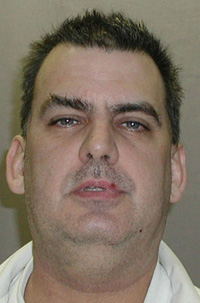Every week, a chapter of my book, “Husband, Liar, Sociopath: How He Lied, Why I Fell For It & The Painful Lessons Learned” (available via Amazon.com, just click on the title or book cover) will be published here on Lovefraud. To read prior chapters, please see the links at the bottom of the post.
Chapter 23: Devil Woman
Unable to abandon the premise that Paul was fundamentally a good, loving, honest man who truly cared about me, I had to explain his behavior in some other way. Still not ready to conclude that I was an essentially selfish, controlling person, as Paul often suggested, the more extreme Paul’s moments of weirdness became, the more I assumed he must be under severe stress or depressed. I needed to love and support him through whatever was going on.
Having children changes the dynamics of a relationship and puts stress on a marriage. Sleep deprivation darkens moods and compromises cognition. Could that be what was wrong? With Paul averaging less than five hours of sleep a night, perhaps that was why he was so irritable at home and why he paid so little attention to Jessica and Daniel. Wasn’t he working around the clock to provide for us? If he was chronically and profoundly starved for sleep, if he was missing our one-on-one relationship, if past childhood hurts needed mending, shouldn’t I respond by focusing as much as I could on him by being loving and supportive?
Within days of Daniel’s birth, Paul returned to his super-human work schedule. As before, Paul’s focus and relentless dedication to his firm left little time for our relationship. At least Paul’s Herculean work schedule was financially rewarding. For him, the payoff was to treat himself to a new two-seater BMW that he just had to have. (Again, note the self-indulgent, impractical, status-oriented, expensive purchase.) I thought it extravagant and impractical, but he was the one working so hard. If he wanted to splurge on himself and we had the money, he encouraged me to think it would be selfish of me to oppose it. For me, the payoff of Paul’s financial success was that I could continue to be as much of a full-time mother as I wanted. I found being the mother of my two children the most joyous experience of my life, so I counted my blessings for Paul’s lucrative compensation and the freedom it afforded me. I continued to spend most of my week being Jessica and Daniel’s mom and worked part-time for myself, finding a steady flow of freelance advertising and public relations projects.
I did projects for people I liked and worked on assignments I enjoyed. I had a group of close female friends who were also mothers of children under five. Paul’s long hours and considerable travel made it easy for my work life and my social life with other moms to stay invisible to him. As long as I arranged my life to fall under Paul’s radar and focused entirely on him on those rare occasions when he was home (and awake), our relationship was workable.
The New York office continued to grow and thrive. Paul was offered an unprecedented partnership after only five years with the firm. It was unimaginable! I was so proud of him. He truly was a superstar.
With Paul so busy and my days brimming with my own work and caring for Jessica and Daniel, I rarely got into the city to see him. One day, however, after Paul had been a partner for two years, I stopped by for lunch. He introduced me to the newest members of his growing team of consultants. Paul had been raving about a new consultant named Anne-Marie. She was a top graduate of New York University’s Stern School of Business, and Paul had convinced her to join his firm over other lucrative offers. She did, ostensibly under the condition that she would work on Paul’s projects exclusively. According to Paul, she was the smartest, most capable, hardest working consultant he had ever met. She was the only person Paul had ever met who was willing to match the insane hours he was willing to work. She was the next Paul. She was a superstar.
Anne-Marie was not at all what I expected. She had a decidedly unattractive horsey face framed by dull brown hair that was in need of a cut. Carrying at least thirty extra pounds on an already big frame, she moved awkwardly. Her choice of frumpy clothing did not enhance her appearance or make her look polished. But as Paul turned toward Anne-Marie at the appropriate part of the, “This is my wife, Onna. Onna, this is Anne-Marie” introduction, Paul was transformed. As if bewitched by a sorceress’ spell, his tone softened, becoming lyrical and velvety. His eyes seemed to caress her large frame as his glance lingered upon her for an uncomfortably long moment. Her response to me felt overly polite and sweet, downright saccharine. Something primal in me stirred. No way, I assured myself. Just no way! I glimpsed her left hand and sighed when I saw a wedding band. A flood of guilt followed the relief. Paul was honorable, honest, and incredibly hardworking; how could I doubt his fidelity and integrity? How silly of me to feel threatened. I was being ridiculous.
To avoid any awkward silence, I asked her about a project she was working on with Paul. My take on her after our interaction was that she was smart for someone from a good business school but not in the rarified atmosphere of “brilliant,” as Paul asserted. Still Paul continued to sing her praises week after week and month after month. Annie-Marie could do no wrong.
About a year after Anne-Marie joined Paul’s firm, he informed me that his consulting firm was considering branching out into a new business area, and the partners were willing to allow him to start a separate, sister company to address this new opportunity. Paul wanted to invest in the new company and be its CEO. In fact, the whole thing was his idea—actually his and Anne-Marie’s.
My heart quickened, and the blood coursing through my body instantly made me feel several degrees hotter. Inside, a voice screamed “Nooooooooooooooo!” With Paul making partner, we were on financial easy street. We wouldn’t be just okay; we would be well off. We had already repaid all of our debts, and if Paul worked just five more years (and we were financially conservative), we would have enough money to do a major “regroup.” We could move to a college town, where Paul and I might be able to teach or work at the college (taking a huge cut in pay), and we would have a wonderful quality of life and a wholesome place to raise Jessica and Daniel. Putting our money at risk and Paul becoming an entrepreneur was not part of the plan.
Any startup is risky, and new ventures require that the founding cast of characters devote insane hours to these fledgling companies to try to make them profitable. Was this ever going to stop? Was I ever going to have a somewhat normal marriage and family life? I wanted to support Paul’s goals and dreams, as I always had, and starting this company was Paul’s dream, so I swallowed hard and gave Paul my blessing for his new undertaking. I told him how much confidence I had in him and that we would make it happen, if this was what he really wanted.
Paul handpicked the employees for the new company. In spite of her mere one year of post-business school experience, Anne-Marie would be his second in command. For her and her alone, he promised a huge pay raise and more prestigious title. I was relatively friendly with Sally, a woman who had worked at Paul’s company, starting at a junior level in Minneapolis. Sally was also going to be part of the new venture. She told me in private that rumors were circulating around the firm that Paul was lobbying to more than double Anne-Marie’s salary, while everyone else had been asked to take a pay cut to keep costs low for the new venture. To pull this off, Paul had used up incredible personal “capital” with the investing partners and had agreed to an eighty percent pay cut himself. So much for making partner in five years and all the commensurate financial security! He had just decided to gamble it all on this new venture. The only person guaranteed to be better off financially—a lot better off—was Anne-Marie.
I was worried. Something seemed very wrong. I talked to Paul about the wisdom of this decision, but his icy response and dismissive tone made it clear that his decisions to put Anne-Marie’s career in overdrive and to take a gargantuan pay cut himself were not only sound business decisions but also none of my concern. After all, I was ignorant about all the relevant details, including her brilliance. When I pressed the point, he redirected the discussion to ensure I would retreat from the topic.
“You’re jealous of Anne-Marie.”
“No, I’m not,” I said. “It just seems odd that she’s the only one to be promoted to a level far beyond what she ever would have been even if she stayed with your consulting company or if she got a job anywhere else. People in your company are talking.”
“Are you spying on me? She deserves every penny, and she’s vital to the success of the startup. I can’t do it without her.”
“Paul,” I said, “it’s a startup. You’re hardly making more money than she is, and you’ve been a partner and out of business school for almost seven years now. She’s had her MBA just a year, and you’re making her almost equivalent to you. It just doesn’t add up. Won’t it create resentment among people who’ve worked with you a lot longer than she has?”
“Clearly you’re the only one who’s resentful,” Paul replied. “You’re jealous because Anne-Marie’s so successful and you’re just a mom.”
Tied up in knots once again, I did not know how to respond. I was happy with the decision I had made about balancing work and being a mom. I had not just done it for me and for the kids; I had done it to preserve my marriage. If I had continued to work full-time as a financial consultant, placing as much of a priority on my career as Paul did on his, Paul and I would never have seen each other, much less the kids. How long would our marriage have lasted? How would Daniel and Jessica have been impacted? I knew of no partners in Paul’s firm who were married with kids who had a spouse with a full-time, demanding job. For most people, it was not a stable long-term solution.
Not understanding Paul’s manipulative trap, his accusation that I was jealous of Anne-Marie made me want to prove to him that I was not. (Notice I was totally distracted from the topic I wanted to discuss with Paul and had been put on the defensive yet again.) The best way to prove that I was not jealous of Anne-Marie? Support Paul.
Start from the beginning:
Go to previous chapter:
Go to the next chapter:
Notes
Identifying names, places, events, characteristics, etc. that I discuss here and in my book have been altered to protect the identity of everyone involved.





































 Patrick Giblin, who scammed 132 women, is charged with more crimes
Patrick Giblin, who scammed 132 women, is charged with more crimes
becomingstrong
Thank you ON Ward,
You gave me so ponder in this installment. The thing that resonated with the most and seems to be a running theme, is Paul’s boundless, never ending energy. Today I felt especially depleted. I feel tired most days. In trying to figure out how my spath, not unlike your spath, could survive on four hours of sleep, work 18 hour grueling days, and out in two hours at the gym. I asked myself how is not falling flat on his face with his exhaustion. My rationale we become exhausted emotionally from work, our family lives etc… They don’t. They are unaffected. And we are having deal with their end. We have emotions for us and for them. That is why they tire.
regretfullymine
Until we got married, I had never seen a man capable of working so many hours, without taking breaks like my husband was, on our farm..during harvests of different crops..he’d arise early, go out, get the combine ready..and as soon as he could, go to a field..and woe to me, if I didnt have MY housework done, a full meal cooked and served..to go and be with HIM until HE chose to quit for the night. I remember many wheat harvests that began in mid-morning and lasted well into the night..he wouldnt even take a few minutes for a drink of water/iced tea and a meal..I might be starved and very hot and thirsty..but NOTHING kept him from working..and I was expected to keep up..with NO rest..I had to eat/drink on the run, usually behind the wheel of an overloaded grain truck that had to be driven to town to be emptied..and brought back ASAP. When harvests were over..I’d be exhausted for 1-2 weeks..he’d get mad and yell, if I couldnt keep up with his work pace. And also, he’d point out that OTHER farm women did my work, the housework and help HIM..and didnt gripe about anything..or he’d brag up the college educated wife of a friend, who didnt go to the field, earned lots of big money and looked good to boot. I never understood how he could work like he did, and still expect me (half his size) to keep up..
becomingstrong
Correction: that is why they don’t tire.
Donna Andersen
Actually, sociopaths often have high energy and don’t sleep much. It’s a condition of the disorder.
slimone
That is my experience too. Every one of these sorts, including my mother, sleep very little. My mother is awake around 0430 in the morning. EVERY morning. When I was ‘dating’ a sociopath he slept around 4 hours a day. He was always going, until he just dropped into a short coma.
It is exhausting to be around them, and they do expect us to keep up. This just makes us even more vulnerable and unstable.